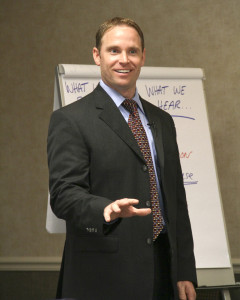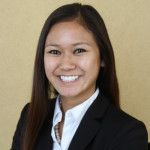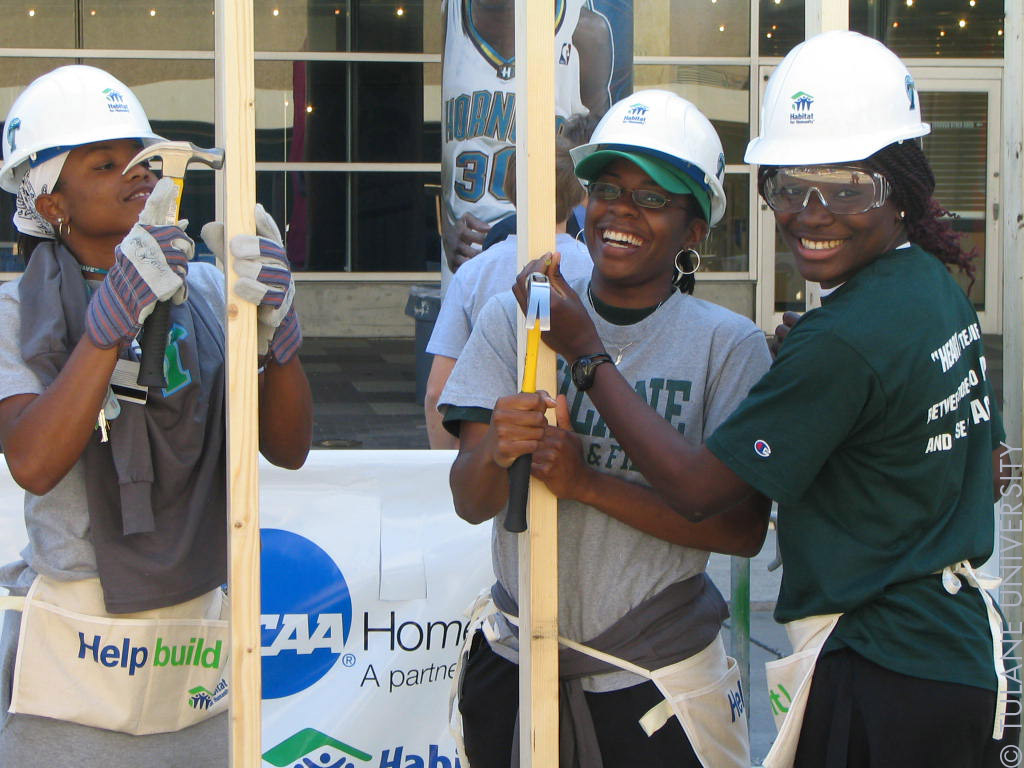Greg Dardis, Class of 1998, came to BVU from the small farming town of Farley for three reasons. “I fell in love with the campus… and the idea of going to classes year-round in shorts, thanks to the underground walkways,” Greg jokes. “The second reason is that I wanted to continue playing football, and the third reason was that I knew a small school was a better fit. Having a personal connection with instructors and faculty is beneficial, and I knew I would get that kind of attention and guidance at BV.”
He set his foundation for lifelong success while at BVU by immersing himself in a variety of transformational college experiences. During his time as a Beaver, Greg had five internships and was also very involved on campus as a DJ, a resident assistant, an academic assistant, and playing football. “Even when I was at BVU, I knew that your future is about experience. I knew I needed a degree, but that was just one piece of the puzzle. The other was getting real- world experience. And BV provided both,” says Greg.
When Greg graduated from BVU with a degree in marketing and corporate communications, he joined the BVU Office of Alumni and Development as a special gifts officer. That job led him to a BV alum in Chicago who took an interest in his experience and sales potential, offering Greg a job in professional training and development.
 Whether training corporate executives at a Fortune 500 company or delivering a workshop on a college campus, BVU alum Greg Dardis is in the business of building future leaders.
Whether training corporate executives at a Fortune 500 company or delivering a workshop on a college campus, BVU alum Greg Dardis is in the business of building future leaders.
Just three years later, at the age of 24, Greg launched Dardis Communications, offering professional image coaching, presentation skills, and sales training. “The company I worked for went through some changes, so it was time for me to move on in my career,” says Greg. “I knew what I liked doing, what I was good at doing, and that was selling. I knew I liked training and development, and that is how Dardis Communications began.”
The company started with just one employee – Greg – but quickly grew to include his mother and sister, and eventually more employees. Today, Dardis Communications is part of Dardis, Inc., a family of companies focused on building future leaders. Greg and his Dardis team of 20 full-time employees and eight independent contractors have trained over 100,000 executives, coached over 500 C-suite executives, and developed more than 5,000 students.
Greg credits the company’s success to maintaining a specific focus for starting and building the business. “The main focus when I started the business, and even to this day, is that we focus on four areas: presentation skills training, professional image or leadership presence, sales training, and business writing. That is our wheelhouse,” says Greg. “I think that is what has made us successful and allowed us to withstand the struggling economy and the ups and downs of business. Just focusing on our core competencies and not wavering from that or trying to get into other components of training and development such as customer service or media training.”
BUILDING THE BUSINESS
In the beginning stages of Dardis Communications, Greg found it challenging to go in to companies and sell to someone who was potentially a lot older. “Selling to someone who had a lot more experience was not easy,” Greg recalls. “I even remember wanting to color my hair grey at one point just to look older.”
What he discovered was that if he was honest with them, and himself, and kept the focus on their needs, the prospective client really became aware of what Greg and Dardis Communications could do for them. “I would focus on the things we teach, such as how to present, how to sell, and how to speak as well as you think. Be clear, complete, and concise. Look the part and pay attention to the little details. And most important, practice what you preach,” says Greg.
He found that the most important element to earning a customer base was to just listen. “From a sales standpoint, I was a really good listener. My parents taught me early on to have an appreciation for listening,” says Greg.
Now that Dardis Communications has grown, its challenges rest with growing the business, meeting customer expectations, and making sure the team is fully trained. Greg holds the role of CEO and president of the company, and his main responsibility is communicating the vision of the company and making sure his team is well positioned for future growth. “Every successful business is focused on the customer and should always be asking, ‘What can we be doing better for the customer?’” says Greg. “We focus a lot of energy on exceeding customer expectations, which means companies continue to use us. We do what we say we’re going to do; we’re consistent.”
TYPICALLY NON-TYPICAL CLIENTS
The clients that Greg and Dardis Communications have worked with are extremely diverse. The company’s client list includes Fortune 500 companies like Pepsi, Wrigley Gum, and John Deere; professional and Olympic athletes; members of the cruise line industry; consumer goods companies; engineers; and more. “Our customer base is really diverse, which makes it fun,” says Greg. “No matter what you do, no matter what your field of study or job is, you have to communicate well and be persuasive with your ideas.”
Many of their clients have found Dardis Communications through word of mouth. The training programs can range from one-on-one personal coaching sessions, to small group workshops or large keynote presentations. “People know they are going to get the best when they sign up for a Dardis program. Our training is extremely hands-on and fun! And for this reason, it’s not uncommon for companies to have a waiting list of people wanting to get into our programs,” says Greg.
The most common training is a two-day Leadership Communication and Image Skills program, which is the company’s flagship program and Greg says, “it’s the best of the best when it comes to executive communication and image skills.”
TRAINING FUTURE LEADERS
The Dardis client list also includes universities and colleges. “Over the years, we have worked with many colleges and universities, but mostly at the MBA (Master in Business Administration) level,” says Greg.
Working with MBA students re-ignited Greg’s passion for working with college students, and he had the desire to do more. “While our program is great for MBA students, we didn’t really have a platform to reach students at the undergraduate level,” says Greg.
Greg continues, “In research that has been done by the Hult International Business School and other groups, one of the biggest gaps among the skills of graduating college students is oral communication skills. College graduates don’t speak as well as they think, and often times can’t sell themselves or an idea in a meeting. In addition, they don’t look the part; they don’t show up looking polished and presentable. We decided we needed to find a way to close those gaps and fulfill that need.”
Just as BVU helped prepare Greg for lifelong success and learning, he wanted to pass that along to students through a program that would help them develop those missing workplace readiness skills such as communication and presentation techniques, improving their professional image, and business skills such as accounting, bookkeeping, and territory and time management.
ESTABLISHING THE PROGRAM
To create a program to work with undergraduate students and still make it affordable for Dardis and the students, in 2011, Greg established Dardis Academy and Dardis Clothiers, the two other components of Dardis, Inc.
Dardis Academy is a student training and development program, focused on developing students with practical skills and real world experience. Students receive five days of intensive classroom training, where they learn everything Dardis Communications teaches regarding communication, image, sales training, business writing, and how to run a business. That is followed by a marketing and sales internship in their hometown that offers nine weeks of real-world experience. “Our students work in their hometown, so they can live with family and work in an area they are familiar with. It also helps them keep their expenses low.”
During the internship, students run their own business marketing men’s apparel such as suits, blazers, polo and dress shirts, trousers, belts, and accessories, which are part of the Dardis Clothiers collection. “We had to come up with a product students could relate to after receiving our training, and professional clothing is a nice fit,” says Greg. “Students are taught about apparel during the Academy so they develop an appreciation for professional image, quality clothing, and why having a polished image is important. We chose men’s clothing, as the style doesn’t change as much, and men usually don’t like to shop.”
A 26,000 square foot center in Dyersville serves as the clothing distribution center and fulfills the student orders, which are then conveniently delivered right to the customer’s door.

“The Dardis program is GREAT! I found it very informational, professional, and beneficial to my career. The Dardis program helped me gain confidence for the summer internship as well as life after graduation.”
– Amanda Kavan, BVU senior marketing major from Storm Lake
Dardis manufactures and designs the clothing that the academy students sell. “We design the clothing and partner with 25 factories to manufacturer our products,” says Greg. “When we design a dress shirt, we design how the shirt looks and feels, its shape, and all of its intricacies. We then make the product in bulk to cut down the cost for the end customer and still provide a margin to be able to pay the students.”
This summer, there are approximately 200 students in the Dardis Academy program from 65 universities across 9 states. The internship or “field experience” is a paid opportunity as students earn money through commission from the clothing they sell while earning college credit and building their resumes.
“Students receive roughly $5,000 worth of professional training. In addition, our top students earn over $3,000 in profit as well as win a free trip to Mexico. One of the biggest benefits to the students is our networking event where they have a chance to interact with top organizations from around the country. These organizations are specifically interested in hiring Dardis grads because they know the quality of our students,” says Greg. “Our end product might be clothing, but our true product is the student. We’re in the business of building future leaders, and the Academy provides a platform where students, parents, and organizations can be a part of something truly unique and special.”
 “The best thing about the program was gaining a new outlook on sales techniques and learning to deliver more effective presentations. The training was extremely hands-on and very interactive.”
“The best thing about the program was gaining a new outlook on sales techniques and learning to deliver more effective presentations. The training was extremely hands-on and very interactive.”
– Tanner Regenwether, senior business major with
entrepreneurship concentration from Marion
PASSION PAYS OFF
Greg credits his parents as being the foundation for his success. “My mom told me, ‘never become a shark in a suit, no matter how successful you get’. Don’t try to be something you’re not; treat people with respect, and that will come through. And it has,” Greg says. “I’m very fortunate. I’ve been able to take what I’m passionate about, create a business around that passion, and work with multiple audiences in training and development.”
Greg lives in Coralville with his wife Tonya, and their children, son Lincoln who is eight years old, daughter Kennedy who is six years old, and Harrison who is seven months old.
Just as he did when he was a student, Greg continues to be involved with BVU. He recently served six years on the BVU alumni board, which helped him stay engaged with the university. He can also be found on campus throughout the year, speaking to students at a variety of events or cheering on the Beavers at homecoming.










 Whether training corporate executives at a Fortune 500 company or delivering a workshop on a college campus, BVU alum Greg Dardis is in the business of building future leaders.
Whether training corporate executives at a Fortune 500 company or delivering a workshop on a college campus, BVU alum Greg Dardis is in the business of building future leaders.
 “The best thing about the program was gaining a new outlook on sales techniques and learning to deliver more effective presentations. The training was extremely hands-on and very interactive.”
“The best thing about the program was gaining a new outlook on sales techniques and learning to deliver more effective presentations. The training was extremely hands-on and very interactive.”


Recent Comments